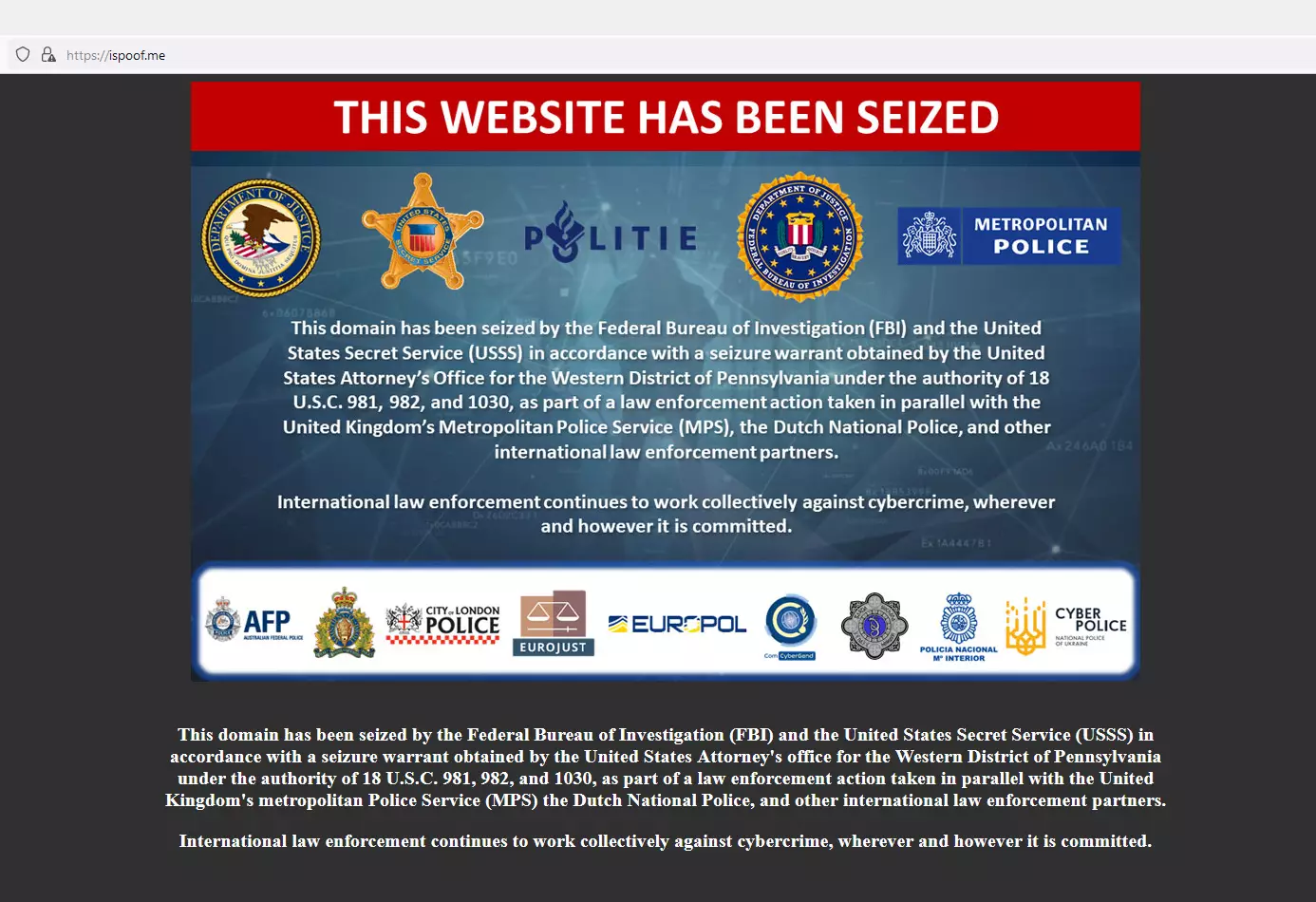Gardaí have arrested six people as part of a major international operation targeting fraud website iSpoof.
The international operation is led by the London Metropolitan Police and includes agencies across Europe, Australia, the US, Ukraine and Canada.
In the UK more than 100 people have been arrested, including the alleged mastermind behind the website Teejai Fletcher.
UK police say the 34-year-old was living a ‘lavish’ lifestyle in London.
He has been charged with making or supplying articles for use in fraud, participating in the activities of an organised crime group and proceeds of crime matters.
 iSpoof.cc. Image: Europol
iSpoof.cc. Image: EuropolThe website allowed fraudsters to impersonate trusted corporations or contacts to access sensitive personal information from victims.
Known as a one-stop ‘spoofing’ shop, police believe the website was used to scam more than 200,000 people.
Up to 21,000 fraudsters worldwide used its services, scamming people out of more than €115m.
In the 12 months until August 2022 around 10 million fraudulent calls were made globally via iSpoof.
Organised crime
“Over recent months we are all aware of the proliferation of ‘spoof’ and scam phone calls,” said Garda Assistant Commissioner Paul Cleary.
“An Garda Síochána, working with our international law enforcement partners, is playing our part in targeting and degrading the activities of Organised Crime Groups.
“The activities earlier this month is the start of a significant investigation being led by the Garda National Economic Crime Bureau which will bring those involved in these criminal activities in this jurisdiction before the courts here in Ireland.”
iSpoof.cc
iSpoof allowed users to make phone calls and send text messages from numbers that appear to be trusted organisations like banks, fraud lines, government departments, delivery companies and more.
Gardaí said Irish residents were using its services to target people living in Ireland.
The website and servers were seized and taken offline by US and Ukrainian authorities on November 8th.
Arrests
This morning Gardaí confirmed that six people have been arrested as part of the investigation in Ireland.
Meanwhile, 17 searches were carried out, with 132 electronic devices seized and 64 suspect bank accounts identified.
The investigation is still in the evidence-gathering phase and is ongoing.









